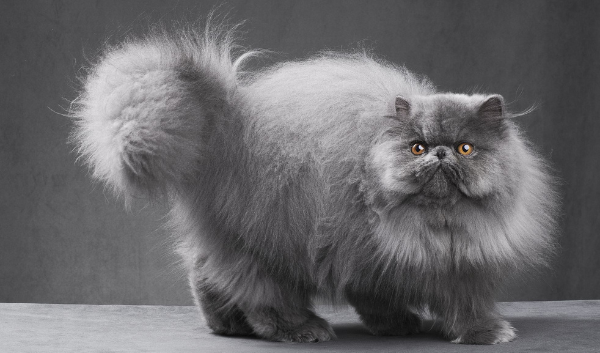Persian Cat Breed Guide: For NZ Cat Owners
With their luxurious coats, gentle personalities, and quiet charm, Persian cats are among the most iconic feline breeds worldwide. Known for their flat faces and regal demeanour, they’re a popular choice for Kiwi cat lovers seeking a calm and affectionate companion. But their beauty comes with unique care requirements.
This guide dives into everything New Zealand owners need to know about Persian cats—from grooming and feeding to temperament, health, and enrichment.
Breed Origins & History
The Persian cat's origins trace back to ancient Persia (modern-day Iran), with long-haired cats imported to Europe as early as the 1600s. The breed was further refined in Britain and the U.S. during the 19th and 20th centuries, with today’s Persians known for their ultra-flat faces, full coats, and large, expressive eyes.
In New Zealand, Persian cats are admired for their calm nature and beauty. They’re often found in quieter homes or with owners who enjoy grooming and a relaxed lifestyle.
Persian Appearance & Physical Traits
Coat: Long, thick, and silky
Face: Flat (brachycephalic) with a short nose and prominent cheeks
Eyes: Large, round, and typically copper, blue, or green
Build: Medium to large, with a sturdy, cobby body
Colours: Available in a wide variety, including solids, bi-colours, Himalayans, and shaded patterns
Their thick fur and rounded shape give them a plush, teddy bear-like appearance.
Personality & Temperament
Persians are quiet, sweet, and loving cats. They enjoy human company but tend to be more reserved than vocal breeds.
- Calm and relaxed, with low energy indoors
- Affectionate with family, but not clingy
- May be shy around strangers
- Prefer gentle petting and quiet environments
They are perfect for households that value a peaceful atmosphere over chaos or noise.
Ideal Environment
Persians are best suited to quiet, stable homes where their environment doesn’t change too frequently.
- Indoor-only homes are ideal (they're not street-smart)
- Warm bedding and low climbing structures
- Quiet corners and sunny windowsills
- An environment free from high-energy pets
Due to their facial structure, they may struggle in extreme heat or dusty conditions.
What to Feed a Persian?
Persians benefit from a diet tailored to support skin, coat, and digestion:
Kittens: Royal Canin Persian Kitten or Pro Plan Healthy Kitten
Adults: Royal Canin Persian Adult or Feline Natural Chicken & Venison
Seniors: Foods with added joint and urinary tract support
Look for omega fatty acids (for coat health) and fibre blends that help reduce hairball formation. Shop our cat food range.
Grooming & Coat Care
This is one of the most important aspects of Persian ownership:
- Daily brushing to prevent mats and tangles
- Eye wiping to manage tear staining
- Occasional bathing with cat-safe shampoo
- Nail trims and ear cleaning as part of routine care
Grooming is non-negotiable for Persians—without it, their coat can become severely matted and cause skin issues.
Health Considerations
Due to their unique facial structure, Persians are prone to specific health challenges:
- Brachycephalic airway syndrome (leading to noisy breathing or heat sensitivity)
- Eye conditions like entropion or excessive tearing
- Polycystic Kidney Disease (PKD): Common in the breed—ask breeders for genetic testing
- Dental issues—regular checks and brushing are ideal
Vet visits every 6–12 months are recommended to stay on top of breed-specific concerns.
Flea & Worm Treatment
Despite being indoors, Persians still need protection:
Fleas: - Monthly treatment recommended all year - Use Bravecto Plus, NexGard Spectra, or Revolution Plus
Worms: - Treat every 3 months - Options include Profender Spot-On, Endogard, or Milbemax tablets
All parasite treatments should be vet-approved, as Persian skin can be sensitive.
Exercise & Enrichment
Persians are not typically driven by play the way active breeds are—but they do enjoy gentle stimulation:
Short training sessions using treats (e.g. name recognition, crate comfort)
Puzzle feeders or slow feeders to engage the brain
Feather wands or plush toys for occasional play
Positive reinforcement for brushing and grooming sessions
Gentle, consistent routines work best. Loud or high-energy activities can cause stress.
Socialisation & Interaction
While not as demanding as some breeds, Persians still appreciate connection:
- Enjoy lap time and quiet cuddles
- Like consistent companionship but can tolerate alone time
- Often bond with one or two family members
- Prefer calm, respectful children and pets
They dislike abrupt changes in schedule or environment, so routine is key.
Is a Persian Cat Right for You?
✅ Best for owners who enjoy grooming and calm environments
✅ Prefers gentle interaction and quiet companionship
✅ Ideal for apartment or indoor living in NZ
❌ Not suitable for busy or unpredictable households
Final Thoughts
The Persian cat is a loving, low-key breed that thrives in relaxed homes with owners who don’t mind a bit of extra grooming. Their affectionate yet dignified nature makes them a joy to live with—if you’re ready for the commitment.
With the right tools, food, and parasite protection from PetSupply.co.nz, you can keep your Persian healthy, beautiful, and content for years to come.

